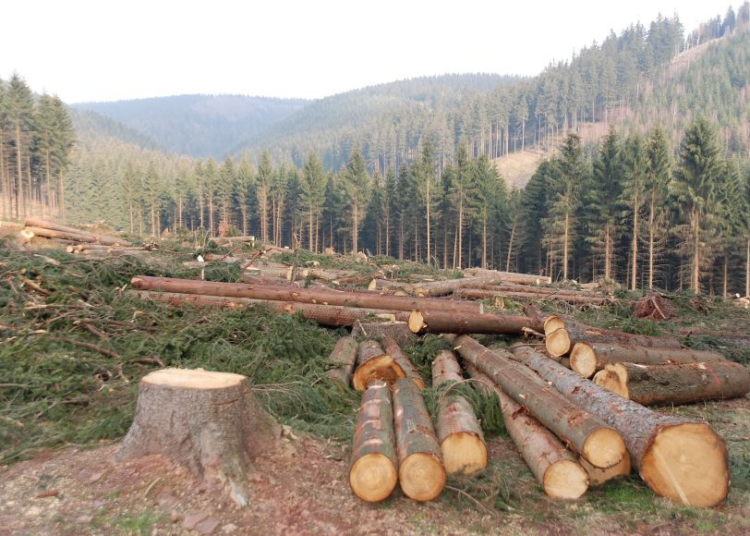Reports from the United Nations(UN)that Nigeria has the highest deforestation rate in the world is an unenviable one that should concern the country’s government at federal, state and local levels.
Deforestation is the systematic removal of forest cover due to human activities and natural occurrences.
The figures are grim and frightening. According to the UN, Nigeria loses an estimated 3.7 percent of its forest every year.
The Food and Agricultural Organisation (FAO) rates Nigeria as having the world’s highest deforestation rate of primary forests, losing more than half of its primary forest in the last five years.
It further stated that between 2000 and 2005, Nigeria lost 55.7 per cent of her primary forests, while in 2020, the country lost 97.8 kilohectares of natural forest.
On its part, Nigerian Conservation Foundation (NCF) reported that Nigeria has lost 96 of its original forests to deforestation.
A lot of factors account for this problem. A primary factor is the pressure mounted on the natural forest cover by a galloping population. From just 45 million at Independence in 1960, Nigeria’s population has exploded in the past three decades to surpass the 200 million mark, and is estimated to hit 400 million by 2050 and put the country as the third most populous behind only India, and China.
Expectedly the quest for food security meant that more and more forest cover is being cleared for farming and other agricultural activities. This in addition to the fact that agriculture still follows the traditional farming practices requiring more land and less yield. Due to rapid urbanisation and industrialization, the pressure on the forest cover for more space and wood for housing needs, manufacturing, and construction of infrastructure for social amenities like hospitals and schools among others have been even more significant. Also, more than a half of the Nigerian population live below the poverty line, with most households unable to afford clean energy sources like gas, kerosene and electricity for cooking and largely depend on wood. Practically all the bakeries in Nigeria run on wood. The activities of logging companies and individuals are another factor, which is linked to weak enforcement and corruption. Natural factors like erosion, drought and desertification contribute their quota to the whole problem. Desert encroachment is a clear and present danger confronting 11 states in Nigerian’s North East and North West states, with many communities already overtaken by sand dunes. Nigeria is estimated to be losing 350,000 hectares of land to desert encroachment every year.
Encouragingly, the country has attempted to halt the rate of deforestation by introducing a number of policies, with an unclear success rate.
In 2021, Nigeria launched the Reducing Emissions from Deforestation and Forest Degradation (REDD+) strategy to curtail deforestation in the country with assistance from the Forest Carbon Partnership Facility of the World Bank as well as the United Nations Programme on Reducing Emissions from Deforestation and Forest Degradation (UN-REDD) programme, with technical assistance from other bodies such as the FAO, the United Nations Development Programme (UNDP) and the United Nations Environment Programme (UNEP), all in an attempt to tackle the wanton destruction of forests.
The government also gave paramilitary status to the National Parks Service (NPS) to strengthen its actions against poaching and trespasses on forest reserves.
With the latest data showing Nigeria is still the country leading in deforestation, it is doubtful if the government’s pledge at COP26 to end deforestation by 2030 will be kept.
One thing the government can do in the battle to stop deforestation is to create awareness among the citizenry about the problem, how it can affect them personally, and why and how they can contribute to solving the problem.
It will also be worthwhile to promote sustainable agricultural practices by adopting better and more modern farming practices and eschewing archaic land clearing activities like indiscriminate bush burning and promoting conservation agriculture, agroforestry, and the use of improved seeds and fertilisers. There is also the need to encourage sustainable forestry practices such as controlled logging, reforestation, and afforestation.
As a newspaper, we commend the plan by Borno State government to plant five million trees in 2023 to combat deforestation and desertification, and its engagement of schools in the project. We believe that other states can adopt this model in order to reverse this negative statistic.
Governments at the federal, state and local council levels can also support groups championing the cause of protecting the environment as well as incentivize efforts of individuals and groups to plant trees.





